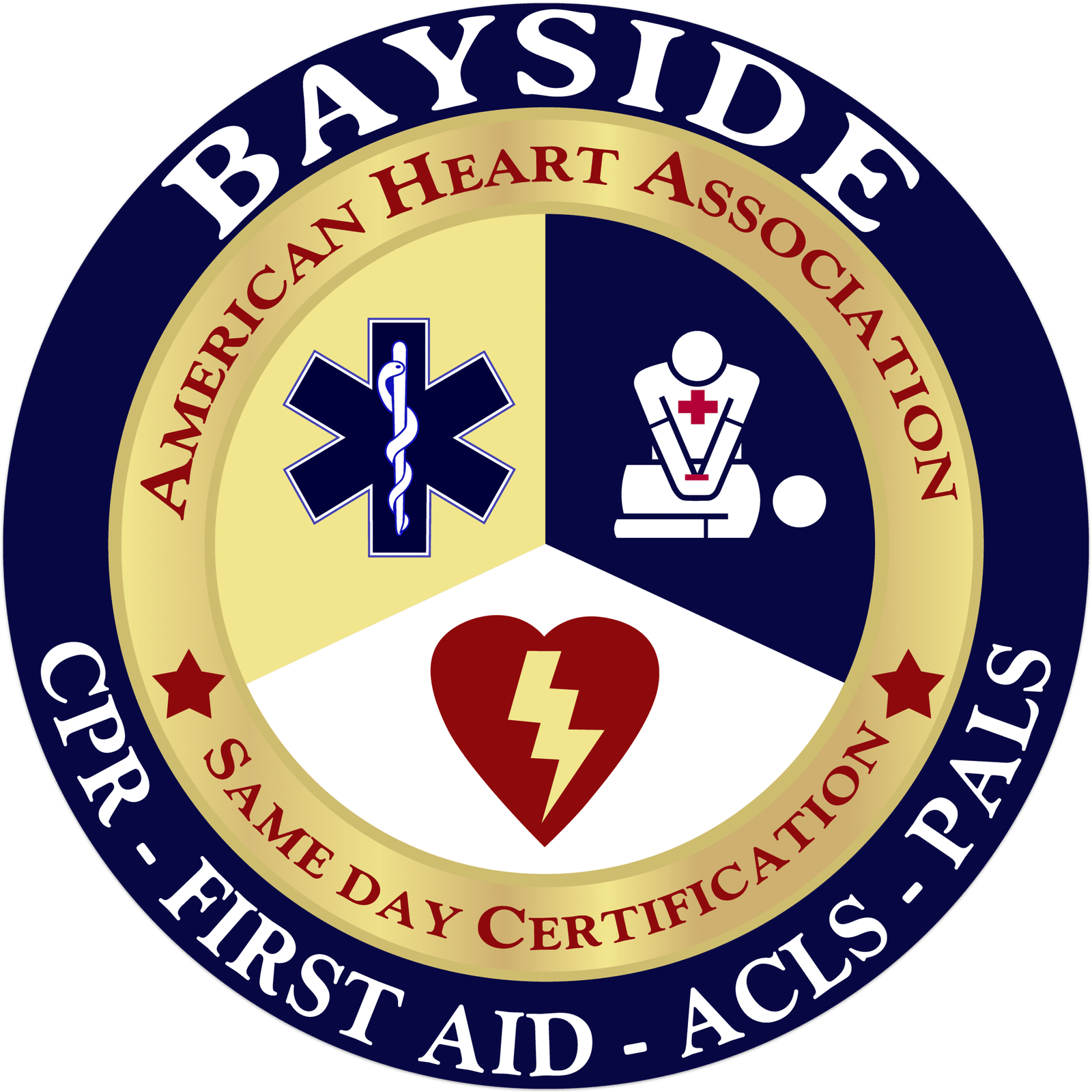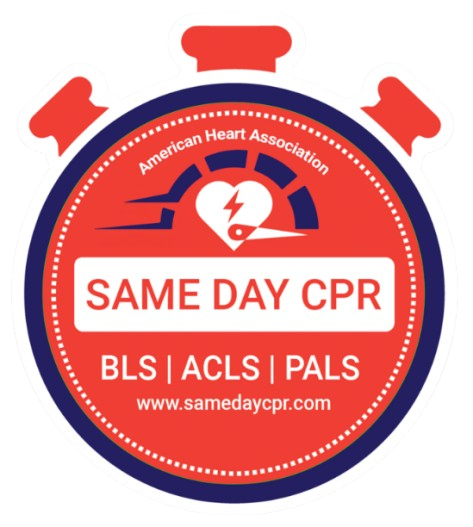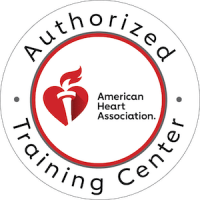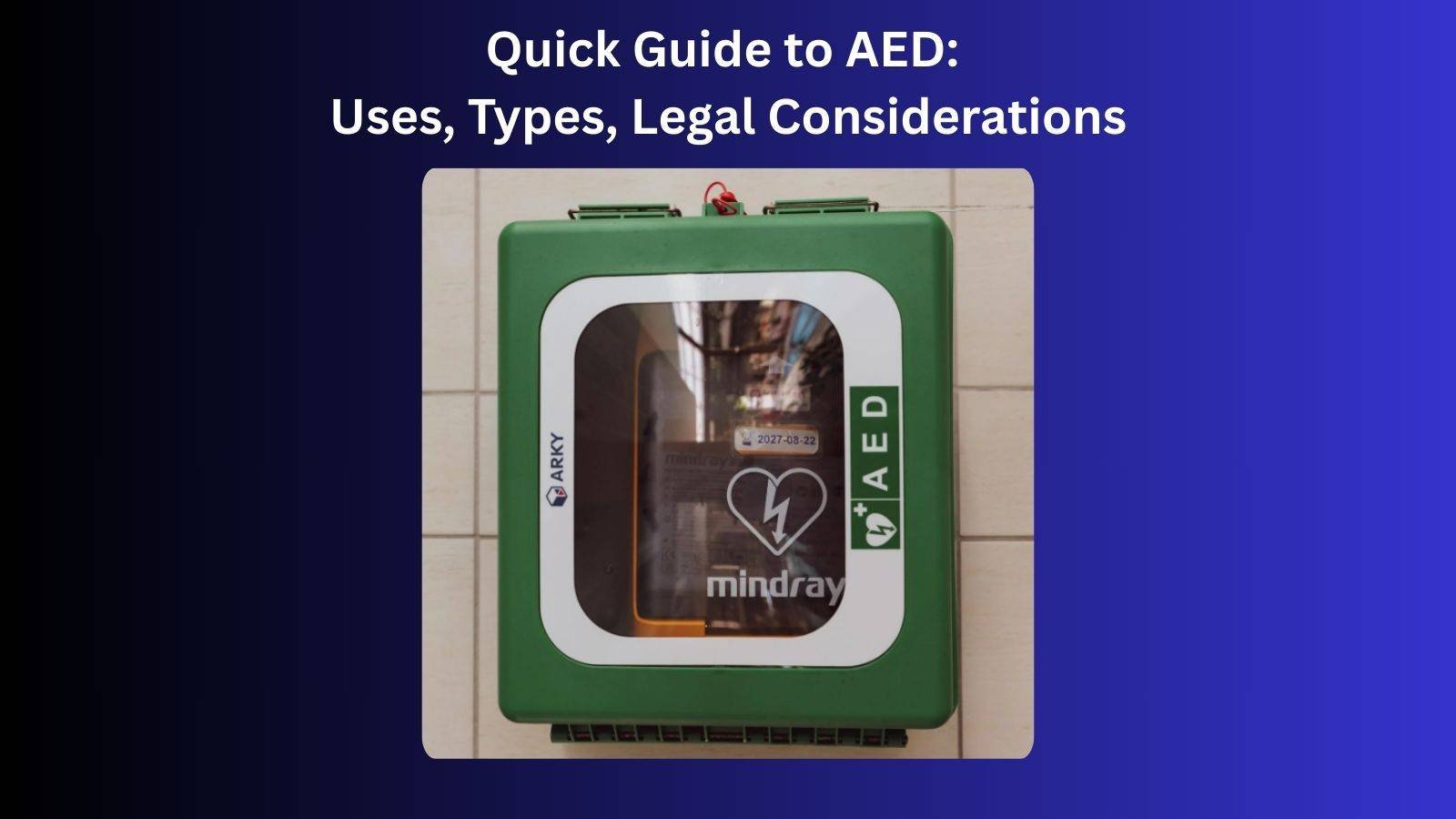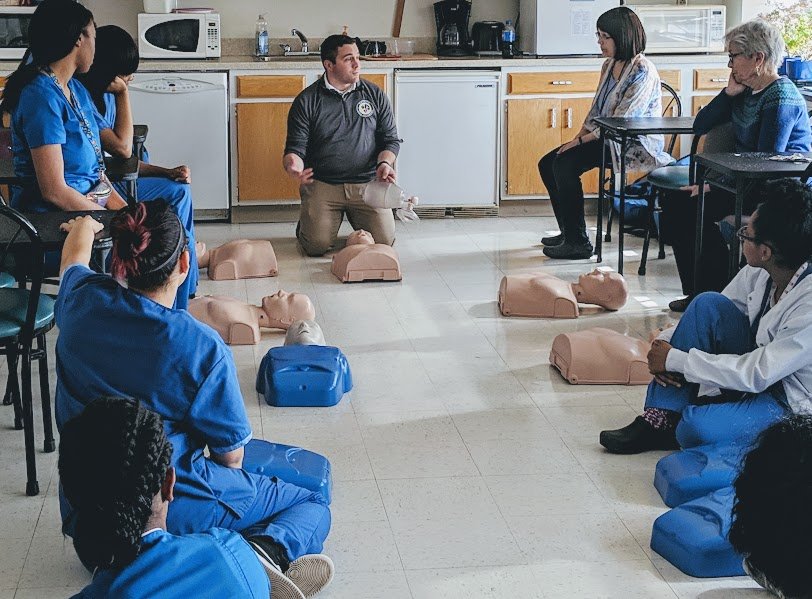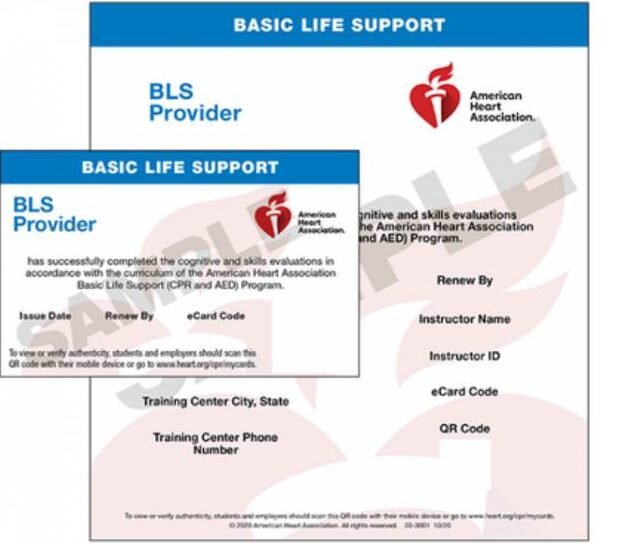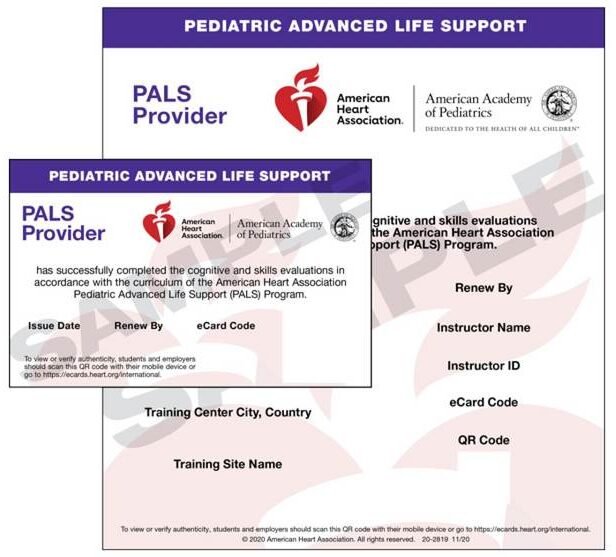Walking through your favorite mall or rushing through an airport terminal, you notice something odd on the wall. Bright boxes, in shades of red, yellow, or green, each have a heart and the letters “AED”.At first glance, they seem simple, almost unnoticed. But these boxes? They’re lifesavers, quietly waiting for someone to need them. You see them in office buildings, gyms, schools, everywhere big crowds gather. It’s almost like they’re part of the scenery now, yet they hold the power to save lives in an instant. Have you ever spotted one?
An AED, or Automated External Defibrillator, is portable medical equipment that can save lives during cardiac emergencies. It works by analyzing a person’s heart rhythm and, if necessary, delivering an electric shock to restore a normal heartbeat. Think of it as a high-tech rescue tool that helps jump-start a heart that’s out of rhythm. AEDs are super important because they can significantly increase survival chances when someone suddenly collapses from sudden cardiac arrest. This device is designed to be user-friendly, making it accessible for anyone to use, even those without medical training.
But here’s the key: Combining CPR with AED use creates a powerful emergency response that can buy valuable time until professional help arrives. It’s not just about delivering a shock; it’s about ensuring the rescue process is as efficient as possible. AEDs require regular inspections to ensure they are functioning properly in case of an emergency. Most AED manufacturers recommend monthly inspections.
Places where an AED is important
Locations like auditoriums, large conference rooms, or cafeterias are common locations for AEDs. In all these places, the common thread is that immediate access to an AED can turn a threatening situation into a survivable event.
1. Public Sports Facilities
Whether it’s a gym, swimming pool, or sports stadium, intense physical activity can sometimes lead to sudden cardiac arrest. Having an AED nearby means quick action can be taken if someone suddenly collapses, and it might make all the difference between life and tragedy.
2. Airports and Transit Hubs
People rushing through airports or train stations often dash around with little time to think. If someone experiences a cardiac emergency in such busy places, an AED can be a game-changer, allowing trained staff or even bystanders to act promptly.
3. Schools and Universities
Our young people are generally healthy, but emergencies can happen anywhere. Placing AEDs in schools ensures that teachers, coaches, or even students can step in immediately, providing a chance for survival until medical help arrives.
4. Workplaces and Factories
At job sites, especially those involving physical labor, the risk of sudden cardiac events can be higher. Having AEDs accessible at workplaces means employees are protected, and emergency response times are reduced, making workplaces safer.
5. Shopping Malls and Large Retail Centers
With lots of people shopping and strolling around, if someone suddenly falls ill, every second counts. AEDs in malls ensure that help is just a quick option, potentially saving lives during a stressful crisis.
When and When Not To Use an AED?
Understanding when to use an AED and when to avoid it is vital for effective emergency response. Knowing these indications and contraindications helps save lives safely and efficiently.
1. When You Should Use an AED?
You should use an AED as soon as someone faints and is unresponsive or not breathing normally. It’s crucial if the person shows no pulse, indicating cardiac arrest. The device is designed to assess the heart rhythm and advise shock delivery if needed, so don’t hesitate to activate it quickly in these situations.
2. When You Should NOT Use an AED?
You should not use the AED if the person is conscious and breathing, or if there is a sign of trauma with suspected spinal injury, because moving the AED might worsen injuries. Also, avoid using it on someone wet or lying in water, unless the pads can be dried properly, to prevent shock hazards.
Types of AEDs
There are different types of AEDs designed for various environments, such as portable models for public use and more advanced versions for medical professionals. Each type is built to be easy to operate and deliver life-saving shocks when needed.
1. Portable AEDs
These are compact, lightweight devices designed for easy transport and quick use in public or emergency settings. You’ll find them in airports, schools, gyms, and workplaces. They’re simple to operate, often with clear voice instructions, making them ideal for bystanders or first responders.
2. Professional AEDs
These are more advanced devices used by trained emergency personnel, such as paramedics and hospital staff. They typically have additional features like multiple electrode pads, more detailed cardiac analysis, and the ability to connect to other medical equipment. Their design allows for more precise interventions and continuous monitoring, suited for clinical or advanced emergencies.
3. AEDs can be semi-automated or fully automated
- Fully Automatic AEDs
These devices analyze the heart rhythm and deliver a shock automatically if needed. You don’t have to press any buttons, just follow the voice prompts. They’re great for public spaces where ease of use is a priority.
- Semi-Automatic AEDs
With these, you analyze the heart rhythm yourself and then press a button to deliver the shock if the device indicates it’s necessary. They give you more control but still guide you clearly through each step.
Operation and Usage
AED can detect and rectify irregular heart rhythms, potentially saving a life. Here’s a simple, step-by-step guide to using it:
- Step 1: Make sure the scene is safe for both you and the victim.
- Step 2: Gently tap the person and shout. If they don’t respond and are not breathing or only gasping, call emergency services immediately.
- Step 3: Open the device and power it up. Most AEDs turn on automatically when opened.
- Step 4: Remove or cut away clothing and dry the chest to ensure good pad contact.
- Step 5: Place the electrode pads on the person’s bare chest as indicated, usually one on the upper right chest and one on the lower left side.
- Step 6: Let the AED analyze the heart rhythm, do not touch the person during analysis.
- Step 7: If the AED advises a shock, ensure no one is touching the person and press the shock button (or it may be delivered automatically).
- Step 8: Immediately continue CPR, starting with chest compressions. Follow the prompts given by the AED.
- Step 9: Keep following the AED prompts and continue CPR until emergency services arrive, the person shows signs of recovery, or you’re too exhausted.
How long do AEDs last?
Let’s talk about maintenance and storage for AEDs in a way that’s easy to understand and helpful.
1. Checking and maintaining AEDs
First off, it’s important to regularly check your AED to make sure it’s always ready to use. Think of it like checking a fire extinguisher; a quick visual inspection can save lives. You want to look for any signs of damage, ensure the device is turned on, and check the status indicator lights to confirm everything is functioning properly. You are wondering about AED products and maintenance.
2. Battery and pad replacements
Battery and pad replacements are key parts of keeping your AED in top shape. Batteries can lose power over time, even if the device isn’t used, so it’s a good idea to replace them as recommended by the manufacturer, often every 1-4 years. Pads, on the other hand, usually have an expiration date printed on them. Using expired pads can affect the AEDs performance, so always check and replace them before they expire.
3. Storage locations
Storage locations matter just as much as the maintenance itself. Keep your AED in a spot that’s easily accessible, clearly marked, and free of mess or extreme conditions like excessive heat or moisture. Common areas include near the main entrance of buildings, in hallways, or designated first aid stations. Make sure everyone on the team knows where it is and how to use it quickly if needed.
Legal and Ethical Considerations for AED
When it comes to using an AED, understanding the legal and ethical landscape can give you the confidence to act when it counts.
1. Legal Considerations
- Good Samaritan Laws
Many regions have laws that protect individuals who use an AED in good faith during emergencies from legal liability.
- Training Requirements
Some jurisdictions may require or recommend CPR/AED training before using an AED, but many devices are designed for use by laypersons without training.
- Authorization
Use of AEDs is generally permitted in public settings, but organizations may need policies to guide responders.
- Maintenance & Accessibility
Legally, AEDs should be regularly checked, maintained, and accessible to ensure readiness.
- Liability
If an AED is improperly used or malfunctions, there could be legal consequences, emphasizing the importance of training and maintenance.
2. Ethical Considerations
- Respect for Autonomy
Always respect the person’s wishes if they have clear advanced commands or express refusal, where known.
- Beneficence
Using an AED aims to save lives and prevent harm.
- Do Not Harm
Ensure proper use to avoid causing further injury.
- Confidentiality & Privacy
Maintain regard for the person’s dignity during emergencies.
- Equity & Accessibility
Aim to make AEDs available in all public spaces to reduce disparities in emergency response.
AEDs: Empowering Immediate Response for Life-Saving Outcomes
In a dangerous emergency, using an AED, which contains electrodes, can help save a person’s life. This guide empowers you with the essential knowledge and confidence to respond swiftly and effectively. Remember, being educated and prepared can make all the difference; your knowledge and quick action can save lives. Let’s work together to create safer communities through awareness and training. Bayside CPR offers AED needs assessment. We’re here to help you enhance safety and readiness in your community or workplace. For more information or to start your journey towards a safer environment, email us at AEDSales@baysidecpr.com or call 443-775-3866. We provide in-depth courses such as BLS, ACLS, CPR and First Aid, PALS, tailored to fit your specific needs. Additionally, we offer group training options, allowing teams and organizations to learn together and be fully prepared to respond in emergencies.
